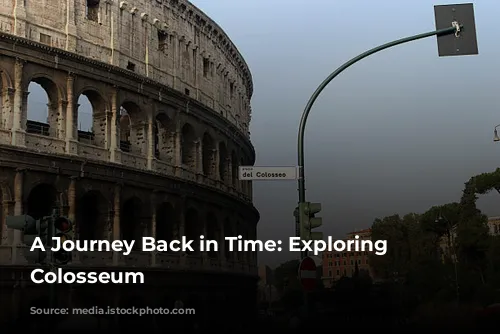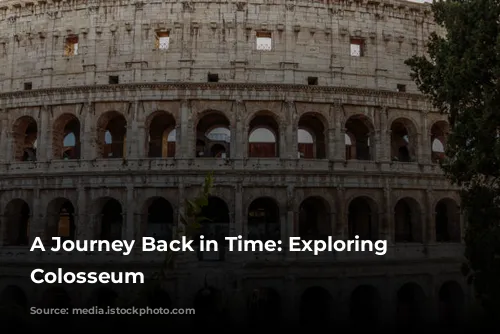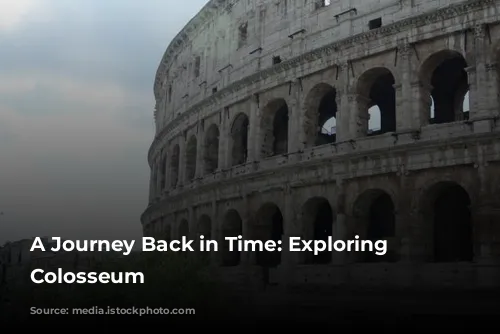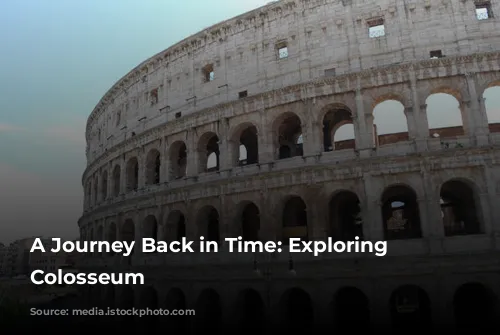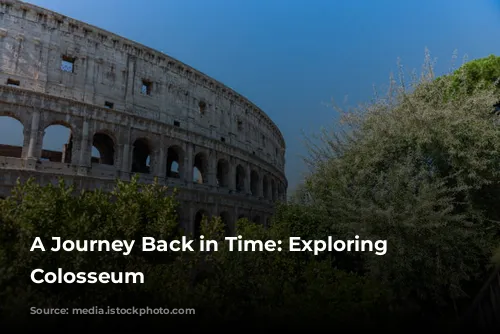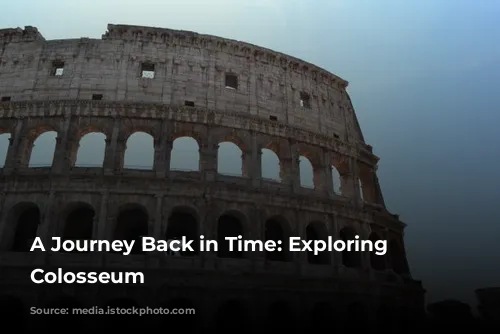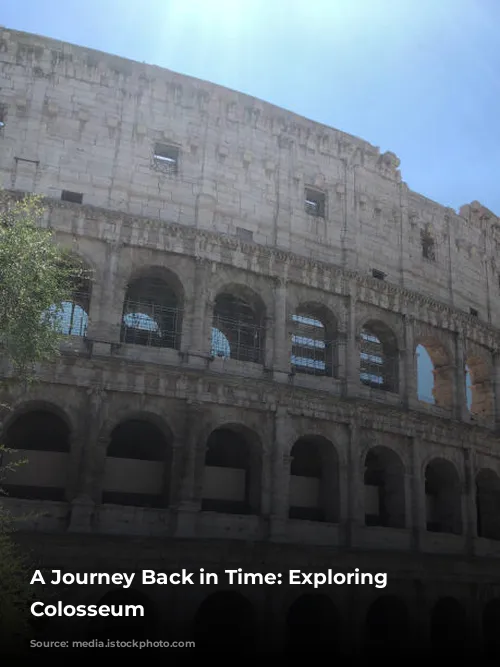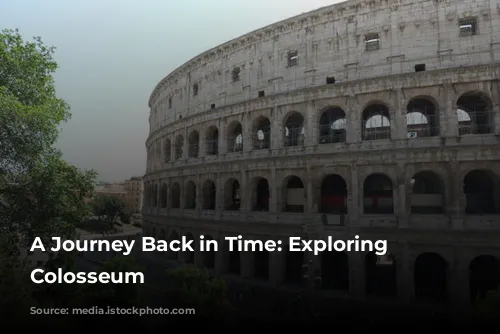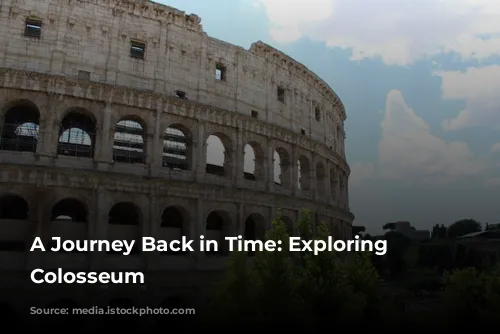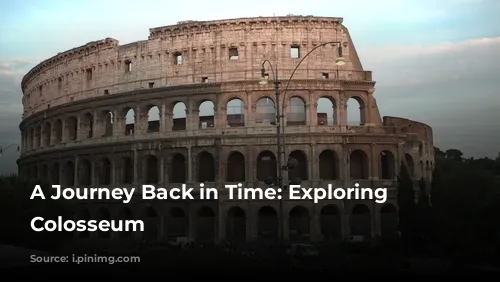Step into the heart of Rome and experience a timeless spectacle: The Colosseum, a towering symbol of the ancient Roman Empire, stands as a testament to the past, inviting you to delve into the lives of its builders and the gladiators who fought within its walls.
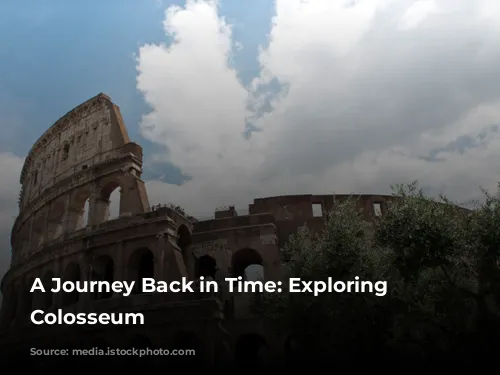
A Monument of Power and Glory
Born from ambition, the Colosseum rose from the earth in the year 72, during the reign of Emperor Vespasian. This grand amphitheater, completed in 80 under Emperor Titus, became the largest and most impressive of its kind. With a length of 188 meters, a width of 156 meters, and a height of 57 meters, it dwarfed all other arenas.
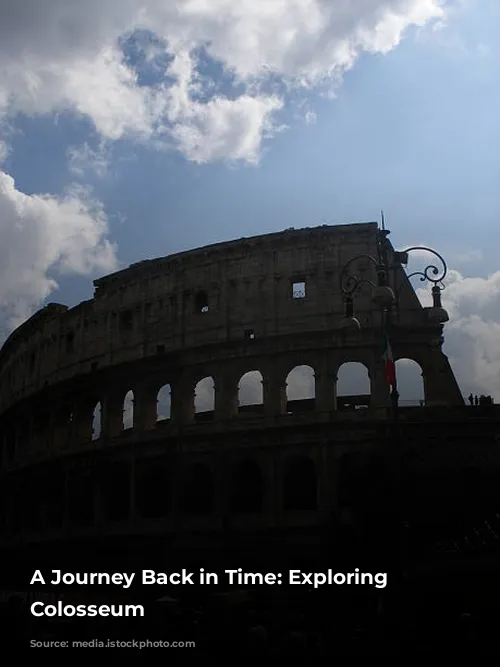
The Colosseum: A Stage for Spectacle
Imagine a world of “Bread and Circuses,” where the roar of the crowd echoes through the Colosseum, the Flavian Amphitheater, as it was originally known. This majestic structure housed over 50,000 spectators, eager to witness breathtaking displays of power and skill. From the thrilling battles of gladiators to the exoticism of wild animal hunts, the Colosseum captivated the Roman people for centuries.
The echoes of the past linger in the Colosseum’s very stones. It remained a bustling center of entertainment for over 500 years, its final recorded games taking place in the 6th century.
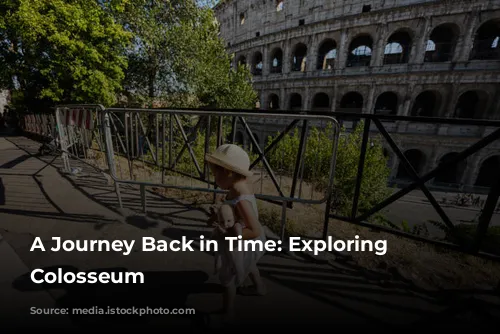
A Survivor of Time’s Terrors
Though the Colosseum’s era of glory faded, its story continued. It witnessed the plundering hands of invaders, the tremors of earthquakes, and the destruction of war. Its strength endured, though, repurposed as a storehouse, a church, a graveyard, and even a noble’s castle.
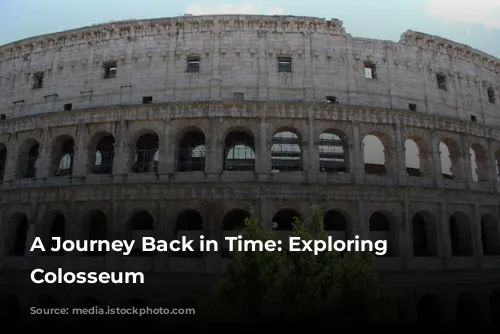
The Colosseum Today: A Timeless Treasure
The Colosseum stands today as Rome’s most celebrated monument, attracting over 6 million visitors annually. It was even declared one of the Seven Wonders of the Modern World in 2007, solidifying its place in the global consciousness.
A fascinating side note: The Colosseum’s name wasn’t always so grand. It was originally called the Flavian Amphitheater, but it took on its modern name after the colossal statue of Nero, known as “The Colossus of Nero,” which stood at the entrance of Nero’s opulent palace, the Domus Aurea. This palace was a marvel of Roman architecture, built after the devastating Fire of Rome.
Did you know? The Colosseum held a secret: a canvas ceiling to shield the crowds from the Roman sun! Hidden beneath the arena lay machinery and cages, ready to unleash spectacles of awe and fear.
Some historians believe that the Colosseum might have been flooded for naval battle recreations. While this theory is intriguing, concrete evidence is still being sought.
There’s a poignant connection between the Colosseum and the Catholic Church. Every Good Friday, the Pope leads a solemn Way of the Cross procession through the arena, remembering the early Christians who met their fate within its walls.
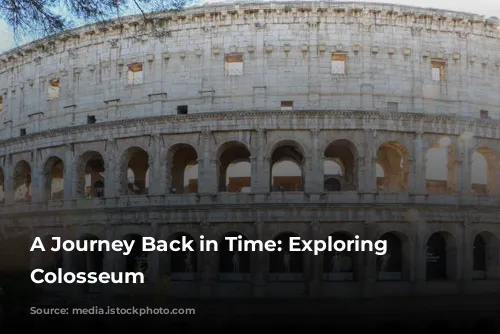
Navigating the Colosseum: A Seamless Experience
Planning a visit to the Colosseum? Here are some tips to make your experience as smooth and rewarding as possible:
Avoid the lines by joining a guided tour: You’ll not only skip the queues, but you’ll also gain insightful knowledge from an expert local guide.
Consider arriving early in the morning or purchasing an entrance ticket to Palatine Hill. Palatine Hill is often less crowded, and its ticket price also includes access to the Colosseum.
For the most convenient and cost-effective option, purchase the Roma Pass. This handy card offers free entry to the Colosseum (and other attractions) without having to stand in line.
Let the Colosseum’s grandeur transport you back in time, revealing the heart of the Roman Empire. Its awe-inspiring architecture and rich history continue to captivate and amaze us, reminding us of the enduring power of human creativity and ingenuity.
